Various Articles
Knowledge of the Unseen
- Published at
-
- Author:
- Ayatullah Ja`far Subhani
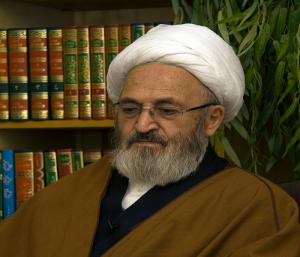
The lexical meaning of the word “hidden” (غيب) is something that is covered. Anything that is hidden or concealed from us - whether this is something physical which is discernable by the senses or something that is Divine, however it has been clothed with the physical (world) and is far from being discernable by our senses - is referred to as being of the hidden (غيب).
Issue of Badaa
- Published at
-
- Author:
- Imam Reza Network
 In another session, al-Mamoon invited him to debate Sulayman al-Maroozi, Khurasan's scientist in kalam(theology), and the debate between them dealt with some significant topics which were being debated then by scholars of the science of kalam, and the starting-point of the discussion was the issue of Badaa(change in an earlier divine ruling).
In another session, al-Mamoon invited him to debate Sulayman al-Maroozi, Khurasan's scientist in kalam(theology), and the debate between them dealt with some significant topics which were being debated then by scholars of the science of kalam, and the starting-point of the discussion was the issue of Badaa(change in an earlier divine ruling).
Interaction With A True Believer Is Pleasant
- Published at
-
- Author:
- Shaykh Majaram Nasir Shirazi
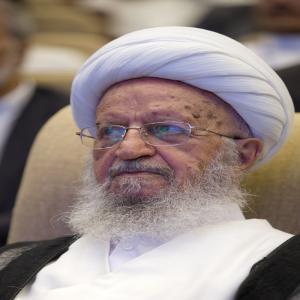 In our previous discussions, we had narrated a tradition from the Noble Prophet (S) which he spoke to 'Ali (as) in which he listed the characteristics of a true believer. Twenty-two of these characteristics have been explained, and now we go through four more of the one hundred and three characteristics.
In our previous discussions, we had narrated a tradition from the Noble Prophet (S) which he spoke to 'Ali (as) in which he listed the characteristics of a true believer. Twenty-two of these characteristics have been explained, and now we go through four more of the one hundred and three characteristics.
An Everlasting Peace Treaty
- Published at
-
- Author:
- Ayatullah Ja`far Subhani
 {And if two factions from amongst the believers begin fighting against one another, then restore peace between them both. However, if one party revolts against the other party, then fight the revolting party until they submit to the command of Allah. When they do so, then restore the peace that was between them with justice and act with equality (between the parties involved). Surely Allah loves those people who act with equality.}
{And if two factions from amongst the believers begin fighting against one another, then restore peace between them both. However, if one party revolts against the other party, then fight the revolting party until they submit to the command of Allah. When they do so, then restore the peace that was between them with justice and act with equality (between the parties involved). Surely Allah loves those people who act with equality.}
Seeking Help from Someone Other than Allah
- Published at
-
- Author:
- Sayyid Rida' Husayni Nasab
 From the three stated preliminaries, we reach the conclusion that the main purport of these Qur’anic verses is prohibition from calling upon the groups of idolaters who regard the idols as partners of God or having the power of intercession, and from any gesture of humility, meekness, or lamentation, seeking assistance, pleading, and request for intercession, or seeking help for the fulfillment of need with the belief that they are gods who have been commissioned to do divine acts and to do some acts related to this world and the hereafter.
From the three stated preliminaries, we reach the conclusion that the main purport of these Qur’anic verses is prohibition from calling upon the groups of idolaters who regard the idols as partners of God or having the power of intercession, and from any gesture of humility, meekness, or lamentation, seeking assistance, pleading, and request for intercession, or seeking help for the fulfillment of need with the belief that they are gods who have been commissioned to do divine acts and to do some acts related to this world and the hereafter.
The Signs of God in our Daily Life
- Published at
-
- Author:
- Shaykh Nasir Makarim Shirazi
 You will most certainly not study this book carelessly. Rather you will concentrate on every sentence and even the choice of words made and if there be a sentence there that you do not understand, perhaps you will spend hours and even days, whenever you can, studying it until the meaning of it becomes clear to you.
You will most certainly not study this book carelessly. Rather you will concentrate on every sentence and even the choice of words made and if there be a sentence there that you do not understand, perhaps you will spend hours and even days, whenever you can, studying it until the meaning of it becomes clear to you.
Intention (Niyyah): The First Essential Element of Prayer
- Published at
-
- Author:
- Hojjat al-Islam Muhsin Qara’ati
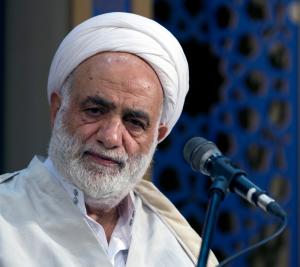 The value of every deed lies in the intention and motive behind it; not merely in the deed itself. Thus, the quality of the actions of a person who stops on a red traffic light in order to maintain order and respect for the law is different from that of a person who carries out the same actions but out of fear of the traffic officer or of the fine that he might receive for violating traffic regulations. In all forms of worship, especially in prayer, intention occupies a special importance.
The value of every deed lies in the intention and motive behind it; not merely in the deed itself. Thus, the quality of the actions of a person who stops on a red traffic light in order to maintain order and respect for the law is different from that of a person who carries out the same actions but out of fear of the traffic officer or of the fine that he might receive for violating traffic regulations. In all forms of worship, especially in prayer, intention occupies a special importance.
The Ideological Basis of Economic Activity
- Published at
-
- Author:
- Imam Reza Network
 The ideological basis in Islam may be summarized into six basic principles: The cornerstone is that everything has to start from the belief in God as the Creator, Lord, and Sovereign of the universe. This implies willingness to submit to God’s will, to accept His guidance, and to have complete and unqualified servitude to Him. This means that Muslims - individually and collectively - should not imitate or emulate any other system if it differs from their particular principles, for example, the system of usury or interest.
The ideological basis in Islam may be summarized into six basic principles: The cornerstone is that everything has to start from the belief in God as the Creator, Lord, and Sovereign of the universe. This implies willingness to submit to God’s will, to accept His guidance, and to have complete and unqualified servitude to Him. This means that Muslims - individually and collectively - should not imitate or emulate any other system if it differs from their particular principles, for example, the system of usury or interest.
Bowing Down (Ruku) and Prostration (Sujud)
- Published at
-
- Author:
- Hojjat al-Islam Muhsin Qara’ati
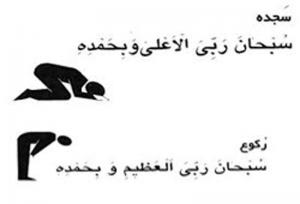 Bowing down {ruku‘} is an essential pillar of prayer. Performing it in an excessive or inadequate manner, whether intentional or unintentional, renders the prayer invalid.
Bowing down {ruku‘} is an essential pillar of prayer. Performing it in an excessive or inadequate manner, whether intentional or unintentional, renders the prayer invalid.
Four Islamic Commandments and the Transient Life of this World
- Published at
-
- Author:
- Shaykh Nasir Makarim Shirazi
 It has been narrated from Abi Ayyub al-Ansari who said: “I heard the Messenger of Allah (S) say: “Cover yourselves with the clothing of obedience (to Allah) and cover (your heart) by going against the desires of your soul. Make your next life by yourselves (through your actions) and make your strivings (in this world) be for your perpetual and everlasting home (meaning the next world).
It has been narrated from Abi Ayyub al-Ansari who said: “I heard the Messenger of Allah (S) say: “Cover yourselves with the clothing of obedience (to Allah) and cover (your heart) by going against the desires of your soul. Make your next life by yourselves (through your actions) and make your strivings (in this world) be for your perpetual and everlasting home (meaning the next world).
A True Believer is Trustworthy
- Published at
-
- Author:
- Shaykh Majaram Nasir Shirazi
 Our ethical discussions have based on the tradition from the Noble Prophet (S) to Imam 'Ali (as) in which there are one hundred and three characteristics that a true believer must possess. Previously, we have covered thirty-five of these characteristics and in today's gathering, we will explain six more.
Our ethical discussions have based on the tradition from the Noble Prophet (S) to Imam 'Ali (as) in which there are one hundred and three characteristics that a true believer must possess. Previously, we have covered thirty-five of these characteristics and in today's gathering, we will explain six more.
The Disciplines of Islam
- Published at
-
- Author:
- Ayatullah Ja`far Subhani
 O’ you who have true faith! Do not give preference (to your own words and deeds) above those of Allah and His Messenger (the Prophet Muhammad, blessings of Allah be upon him and his progeny). And have consciousness of Allah. Unquestionably, Allah is the All-Hearing, All-Knowing.}
O’ you who have true faith! Do not give preference (to your own words and deeds) above those of Allah and His Messenger (the Prophet Muhammad, blessings of Allah be upon him and his progeny). And have consciousness of Allah. Unquestionably, Allah is the All-Hearing, All-Knowing.}
Reasons Why People Gravitate Towards Atheism
- Published at
-
- Author:
- Murtuza Mutahhari
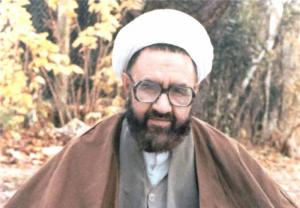 Incidentally, there are other people who have been able to recognize the things which pain this generation and have been able to misuse these youth and misguide them. What path did the teachings of materialism - which have even appeared in this country (Iran) - use which were able to make people sacrifice their lives for these things and for the purpose of atheism?
Incidentally, there are other people who have been able to recognize the things which pain this generation and have been able to misuse these youth and misguide them. What path did the teachings of materialism - which have even appeared in this country (Iran) - use which were able to make people sacrifice their lives for these things and for the purpose of atheism?
Reasons for the Differences Among the Miracles of the Messengers
- Published at
-
- Author:
- Murtuza Mutahhari
 There is a h.a-di-th which is somewhat well-known which backs up our claim of differences in the methods of guidance as seen in the reasons for the differences among the miracles of the various Messengers sent. Although this h.a-di-th is in relation to the various miracles of the Prophets which were of a different nature to coincide with different time periods, however it still backs up our claims (in relation to the methods of guiding the youth). This h.a-di-th is actually the response that Ibne Sikkiyt (r.d.a.) received from Ima-m al-Ha-di- (a.s.) - the tenth Divinely appointed religious guide.
There is a h.a-di-th which is somewhat well-known which backs up our claim of differences in the methods of guidance as seen in the reasons for the differences among the miracles of the various Messengers sent. Although this h.a-di-th is in relation to the various miracles of the Prophets which were of a different nature to coincide with different time periods, however it still backs up our claims (in relation to the methods of guiding the youth). This h.a-di-th is actually the response that Ibne Sikkiyt (r.d.a.) received from Ima-m al-Ha-di- (a.s.) - the tenth Divinely appointed religious guide.
Faith Depends Upon Knowledge
- Published at
-
- Author:
- Imam Reza Network
 The Quraysh were constantly warning Abu Talib (‘a) to control his nephew from spreading monotheism and deriding their gods, but he would silence them in his own courteous, but firm, manner. Islam went on spreading from household to household, from street to street, from tribe to tribe, but not without immense difficulties and obstacles placed in the path of the Muslims. The Holy Prophet (s) was never deterred by the threats he faced. However, he (s) suffered when he (s) saw the tortuous suffering of the believers.
The Quraysh were constantly warning Abu Talib (‘a) to control his nephew from spreading monotheism and deriding their gods, but he would silence them in his own courteous, but firm, manner. Islam went on spreading from household to household, from street to street, from tribe to tribe, but not without immense difficulties and obstacles placed in the path of the Muslims. The Holy Prophet (s) was never deterred by the threats he faced. However, he (s) suffered when he (s) saw the tortuous suffering of the believers.
The Holy Qur'an: The Greatest Miracle of the Holy Prophet Muhammad (S.A.W.)
- Published at
-
- Author:
- Yasin T. al- Jibouri
 Linguistically, a “miracle’ is the inability, incapability, or inimitability. One who is capable of affecting something which nobody else can affect is the doer of a miracle. None other than Allah Almighty is capable of doing so. He, and only He, is the One Who decrees, Who manifests His might over others, including, of course, the natural phenomena and the cosmos at large.
Linguistically, a “miracle’ is the inability, incapability, or inimitability. One who is capable of affecting something which nobody else can affect is the doer of a miracle. None other than Allah Almighty is capable of doing so. He, and only He, is the One Who decrees, Who manifests His might over others, including, of course, the natural phenomena and the cosmos at large.
How to Live by the Shari'ah?
- Published at
-
- Author:
- Sayyid Muhammad Rizvi
 Was not the Qur'an enough on its own? The Qur'an is a book of guidance which was sent for the entire human world till the end of time. As such, it only deals with the general issues and mentions only the basic principles underlying the Muslim way of life.
Was not the Qur'an enough on its own? The Qur'an is a book of guidance which was sent for the entire human world till the end of time. As such, it only deals with the general issues and mentions only the basic principles underlying the Muslim way of life.
Need for Religion
- Published at
-
- Author:
- Allamah Sayyid Sa'eed Akhtar Rizvi
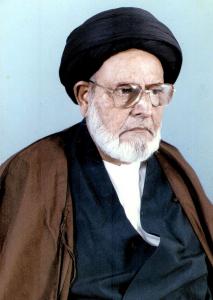 (a) We know that man is a social animal. Every man depends upon millions of people for his life and its necessities. Also we know that every society needs some laws to prevent injustice and preserve the rights of every member of the society. But who is the right authority to make the Law? One man (be he a monarch or a dictator)? No! Because he, instinctively, will look, first of all, after his own interest. A group of people (be it an aristocracy or democracy)? No! Because every one of them is capable of wrong judgment; and a lot of wrong decisions do not add up to a right decision.
(a) We know that man is a social animal. Every man depends upon millions of people for his life and its necessities. Also we know that every society needs some laws to prevent injustice and preserve the rights of every member of the society. But who is the right authority to make the Law? One man (be he a monarch or a dictator)? No! Because he, instinctively, will look, first of all, after his own interest. A group of people (be it an aristocracy or democracy)? No! Because every one of them is capable of wrong judgment; and a lot of wrong decisions do not add up to a right decision.
The System of Ijtihad in Shi’ahs
- Published at
-
- Author:
- Sayyid Muhammad Rizvi
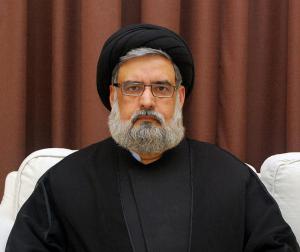 Is ijtihad necessary? If Islam is a religion which is to stay till the end of time, then there must always be some people who can guide the Muslims in the changing circumstances of time and of place. After the Prophet of Islam (PBUH), the most ideal persons to guide Muslims were the Imams of Ahlul-Bayt. However, the Present Imam, Muhammad al-Mahdi (a.s.) has gone into the Occultation and will re-appear when Allah (SWT) wishes him to appear. So what is to be done in the mean-time? Are the Shi'ahs to suspend the shari'ah? No, of course, not! Islam is the religion for all times and places.
Is ijtihad necessary? If Islam is a religion which is to stay till the end of time, then there must always be some people who can guide the Muslims in the changing circumstances of time and of place. After the Prophet of Islam (PBUH), the most ideal persons to guide Muslims were the Imams of Ahlul-Bayt. However, the Present Imam, Muhammad al-Mahdi (a.s.) has gone into the Occultation and will re-appear when Allah (SWT) wishes him to appear. So what is to be done in the mean-time? Are the Shi'ahs to suspend the shari'ah? No, of course, not! Islam is the religion for all times and places.
Islam’s Ideal Form of Democracy
- Published at
-
- Author:
- Muhammad Taqi Misbah Yazdi
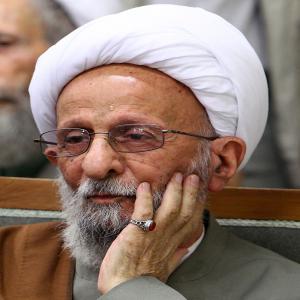 As to which of these administrative forms is acceptable to Islam, we have said earlier that if democracy in legislation means that whatever is approved by the majority of people - that is, 50% plus 1 - is a credible, official and binding law even if it were against the text of the Qur’an, then Islam does not accept such democracy in legislation. Islam that has its own explicit laws in various administrative affairs, judiciary, economics, management, and related to other organs of the country does not allow a law against the explicit text and fixed decree of the Qur’an to be recognized officially. To officially recognize such a law is tantamount to rejection of Islam.
As to which of these administrative forms is acceptable to Islam, we have said earlier that if democracy in legislation means that whatever is approved by the majority of people - that is, 50% plus 1 - is a credible, official and binding law even if it were against the text of the Qur’an, then Islam does not accept such democracy in legislation. Islam that has its own explicit laws in various administrative affairs, judiciary, economics, management, and related to other organs of the country does not allow a law against the explicit text and fixed decree of the Qur’an to be recognized officially. To officially recognize such a law is tantamount to rejection of Islam.


